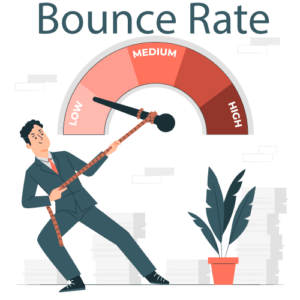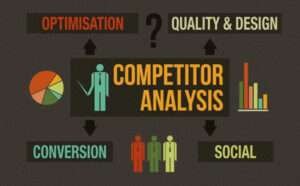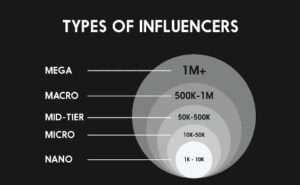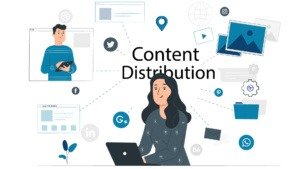
Lying to sell more might seem like a tempting strategy for quick gains, but it carries significant ethical, reputational, and long-term consequences. Engaging in deceitful practices can undermine your business in multiple ways. Here’s an in-depth look at why honesty should always be at the forefront of your sales strategy:
1. Loss of Trust
Trust is the cornerstone of any successful business relationship. When customers discover they’ve been lied to, their trust in your brand diminishes. Trust, once lost, is extremely difficult to regain. Customers who feel deceived are likely to avoid future interactions with your brand, which can lead to a loss of business and tarnish your reputation.
How Trust is Lost:
- Broken Promises: If your product or service doesn’t meet the expectations set by your sales pitch, customers will feel betrayed.
- Misinformation: Providing false information about product capabilities or benefits will inevitably be discovered, leading to disappointment and distrust.
- Transparency Issues: Lack of transparency can make customers skeptical about your intentions and the quality of your offerings.
2. Reputation Damage
In the age of social media and online reviews, word of mouth travels faster and wider than ever before. When customers realize they’ve been misled, they are likely to share their negative experiences publicly. This can severely damage your brand’s reputation, as potential customers often rely on reviews and testimonials when making purchasing decisions.
Impact on Reputation:
- Negative Reviews: Angry customers are more likely to leave negative reviews online, which can deter potential customers.
- Viral Complaints: Complaints can go viral, especially if they resonate with a larger audience or are picked up by influential bloggers or news outlets.
- Loss of Credibility: Consistent negative feedback can establish a reputation for dishonesty, making it difficult to attract new business.
3. Customer Dissatisfaction
Lying often leads to customers receiving products or services that don’t meet their expectations. This mismatch results in dissatisfaction, increased return rates, and demands for refunds. A poor customer experience can ultimately harm your business by reducing the likelihood of repeat purchases and fostering negative word-of-mouth.
Consequences of Customer Dissatisfaction:
- Increased Returns: Dissatisfied customers are more likely to return products, leading to higher operational costs.
- Decreased Loyalty: Customers who feel cheated are less likely to be loyal to your brand and more likely to switch to competitors.
- Brand Advocates Turned Detractors: Customers who might have become brand advocates instead become critics.
4. Legal and Regulatory Issues
False advertising or making misleading claims can lead to severe legal consequences. Regulatory bodies enforce truth in advertising laws to protect consumers from deceptive practices. Companies found guilty of false advertising can face fines, sanctions, and mandatory corrective advertising, all of which can be costly and damaging to your brand.
Legal Risks Include:
- Fines and Penalties: Regulatory bodies like the Federal Trade Commission (FTC) can impose hefty fines on businesses that engage in deceptive advertising.
- Lawsuits: Customers may file lawsuits for misrepresentation or breach of contract.
- Compliance Costs: Ensuring compliance with advertising regulations can incur additional costs.
5. Short-Term Gains, Long-Term Losses
While lying might result in short-term sales boosts, the long-term effects are often detrimental. Loyal customers, those who return, refer others, and provide consistent business, are the backbone of any sustainable business. Deceit drives these valuable customers away, undermining the foundation of your business.
Long-Term Impact:
- Erosion of Customer Base: Deceptive practices drive away repeat customers.
- Diminished Referrals: Satisfied customers who might have referred others are less likely to do so.
- Increased Customer Acquisition Costs: Constantly needing to attract new customers to replace lost ones is costly and inefficient.
6. Negative Work Environment
Encouraging a culture of lying within your sales team creates a toxic work environment. It can harm team morale and cohesion, leading to high turnover rates and decreased productivity. Employees who are pressured to lie may feel demoralized, leading to decreased job satisfaction and performance.
Effects on Work Environment:
- Morale Decline: Employees may feel uneasy or guilty about lying, which can lead to decreased morale.
- High Turnover: Ethical conflicts can prompt employees to leave, increasing turnover rates and associated costs.
- Trust Issues: A culture of dishonesty can lead to mistrust among employees, further eroding team cohesion.
7. Damage to Employee Morale
Employees who are pressured to lie to customers might feel uncomfortable and disconnected from their work. This discomfort can lead to decreased job satisfaction, lower engagement, and ultimately reduced performance. Ethical dilemmas can also result in high turnover, as employees seek work environments that align with their personal values.
Impact on Morale:
- Ethical Stress: Employees may experience stress and anxiety over being asked to compromise their values.
- Disengagement: Feeling disconnected from the company’s values can lead to disengagement and lower productivity.
- Retention Issues: High turnover rates can increase hiring and training costs, and disrupt team dynamics.
8. Diminished Customer Loyalty
Lying erodes customer loyalty. Customers who feel deceived are less likely to engage with your brand in the future, reducing repeat business and potentially affecting your bottom line. Building a loyal customer base requires consistency, trust, and honesty.
Building Loyalty Instead:
- Consistent Quality: Ensure your products and services consistently meet or exceed expectations.
- Transparent Communication: Keep customers informed with honest and clear communication.
- Value-Driven Relationships: Foster relationships based on mutual respect and value.
9. Ethical Concerns
Lying is ethically wrong and can lead to internal conflicts for both employees and leadership. Upholding ethical standards in business not only benefits your customers but also shapes a positive company culture. Ethical behavior builds a foundation of trust and respect, essential for long-term success.
Ethical Business Practices:
- Transparency: Be open and honest in all business dealings.
- Integrity: Uphold strong moral principles, even when it’s challenging.
- Corporate Responsibility: Embrace responsibility for the impact of your business on society and the environment.
10. Lost Opportunities
Building a loyal customer base through honest practices leads to referrals, positive reviews, and repeat business. Lying squanders these opportunities for growth. Customers appreciate transparency and are more likely to support brands that align with their values.
Capitalizing on Opportunities:
- Word-of-Mouth Marketing: Satisfied customers are more likely to refer others to your business.
- Positive Reviews: Encourage and showcase genuine customer reviews to build trust.
- Loyalty Programs: Implement loyalty programs to reward repeat customers and foster long-term relationships.
11. Alternative Strategies
Instead of lying, focus on highlighting the genuine benefits and features of your products or services. Provide accurate information to help customers make informed decisions. This approach not only builds trust but also positions your brand as a reliable and ethical choice.
Honest Sales Techniques:
- Benefit-Focused Selling: Emphasize the real benefits and unique selling points of your products.
- Educational Content: Provide content that educates and informs customers, helping them make the best choices.
- Customer Testimonials: Use real customer testimonials to build credibility and trust.
12. Sustainable Growth
Long-term business success is built on authenticity and delivering value. Lying may yield short-lived gains, but authenticity ensures sustained growth over time. Building a brand known for its integrity attracts loyal customers and fosters a positive business environment.
Keys to Sustainable Growth:
- Customer-Centric Approach: Focus on delivering exceptional value and experiences to your customers.
- Continuous Improvement: Regularly seek feedback and strive to improve your offerings.
- Ethical Leadership: Lead by example, demonstrating ethical behavior and decision-making.
Conclusion
Lying to sell more can have far-reaching negative consequences that impact your brand’s reputation, customer relationships, and overall success. Upholding honesty and integrity in your sales efforts builds a foundation of trust that leads to sustainable growth and customer loyalty. By focusing on genuine value, transparent communication, and ethical practices, you can create a successful business that thrives on trust and long-term relationships. Remember, the key to lasting success lies in being honest, ethical, and consistently delivering value to your customers.

















































